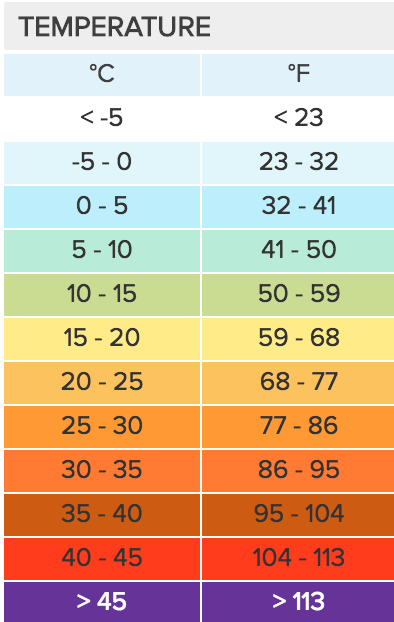Forecast
Jibberding (30.0234°S, 116.7848°E, 301m AMSL) set as my default location ›
-
My MLA
-
Current condition
TODAY12° 29° Chance of rain: 5% Likely amount: < 1mm First
light

Last light Sunrise Sunset 6:11am WST 6:36am WST 5:48pm WST 6:12pm WST NOW11.4° Feels Like: 10.0° Relative Humidity: 58% Dew: 3.4° Wind: N 0km/h Gust: 0km/h Rainfall since 9am: 0.0mm Pressure: 1025.1hPa -
Today Weather
JibberdingNow11.7°cFeels Like:9.9°Wind:N 0km/hGusts:0km/hHumidity:48%12°Min29°MaxToday in JibberdingSunny. Winds NE 15 to 25 km/h becoming light in the middle of the day. Daytime maximum temperatures in the high 20s.Tomorrow13°Min30°MaxSunny. Winds NE 15 to 25 km/h tending N in the morning then becoming light in the middle of the day. Overnight temperatures falling to between 12 and 15 with daytime temperatures reaching around 30. -
Radar
-
Popup Radar
-
Warnings
There are no current warnings for Jibberding
-
7 day forecast
Today: Sunny. Winds NE 15 to 25 km/h becoming light in the middle of the day. Daytime maximum temperatures in the high 20s.
Forecast for Jibberding (30.0234°S, 116.7848°E, 301m AMSL) Sat Sun Mon Tue Wed Thu Fri Summary Minimum 12° 13° 11° 9° 9° 9° 11° Maximum 29° 30° 26° 21° 22° 24° 24° Chance of rain 5% 5% 5% 5% 5% 40% 50% Likely amount < 1mm < 1mm < 1mm < 1mm < 1mm < 1mm < 1mm UV index High High High High High High High Fire Danger Rating High Moderate High High - - - Frost risk Nil Nil Nil Nil Nil Nil Nil 9am 3pm 9am 3pm 9am 3pm 9am 3pm 9am 3pm 9am 3pm 9am 3pm Wind speed 24
(km/h)15
(km/h)24
(km/h)9
(km/h)21
(km/h)27
(km/h)38
(km/h)32
(km/h)35
(km/h)29
(km/h)33
(km/h)27
(km/h)28
(km/h)18
(km/h)Wind direction ENE ENE NE WNW S S ESE ESE E ESE E E ENE NE Relative humidity 34% 14% 34% 16% 40% 28% 57% 33% 50% 30% 49% 29% 43% 27% Dew point 4°C -2°C 5°C 1°C 5°C 6°C 6°C 4°C 4°C 3°C 5°C 4°C 4°C 3°C -
28 Day Rainfall forecast
-
12 Month Rainfall Forecast
Jibberding Rain Forecast
Jibberding 12-month Rainfall ForecastAprMayJunJulAugSepOctNovDecJanFebMar202420251656556108868105012 - 34 - 78 - 910Well below normalBelow normalNear normalAbove normalWell above normalIssue Notes - Issued Apr 16
ENSO status: Inactive. El Niño ended. IOD status: Neutral, becoming positive. SAM status: Positive, favouring positive. The El Niño Southern Oscillation (ENSO) has returned to an inactive phase for the first time since August 2021. Ocean cooling is occurring in the eastern Pacific, with 3 out of 7 global models forecasting a La Niña to develop in 2024. Warmer than normal waters are situated in the Coral Sea, providing moisture and humidity to the east coast. The atmosphere continues to be firmly neutral after weakening early in the year. A neutral ENSO typically has no significant impact on Australian rainfall during winter. The Indian Ocean Dipole (IOD) is in a neutral phase. Ocean temperatures are high across most of the Indian Ocean, and the IOD index is spiking in response. Persistent southeasterly winds have set in over the eastern Indian Ocean, signalling that the atmosphere is starting to respond to the ocean patterns. All international models are suggesting the IOD will strengthen into apositive phase over the next 2-3 months, with significant upwelling to start near Indonesia possibly in May. A positive IOD reduces the number of northwest cloudbands that cross Australia during winter and spring, reducing rainfall across central and southeastern parts of Australia. The Southern Annular Mode (SAM) is positive and will favour a positive phase during autumn and into winter. A positive SAM increases easterly winds, increasing rainfall and thunderstorm activity in the east. A positive SAM also reduces cold fronts and rainfall over southern Australia, particularly for southwest WA. Rainfall outlooks are showing below average rainfall over winter for WA, and the southwest coasts of SA, Vic and Tas. Conversely, above average rainfall is expected for eastern parts of Qld and NSW, and potentially eastern Tas.
-
Popup - Daily historical
-
Long range rainfall forecast
-
Past 5 Days
Jibberding Past 5 Days
This MonthMinimum Maximum Rainfall Monday
Apr 1512.3 °C 28.0 °C 0.0 mmTuesday
Apr 1613.7 °C 30.8 °C 0.0 mmWednesday
Apr 1714.8 °C 32.4 °C 0.0 mmThursday
Apr 1816.7 °C 31.3 °C 0.0 mmFriday
Apr 1911.2 °C 27.8 °C 0.0 mmLegend -
Almanac
Almanac
Jibberding minimum temp history (30.0234°S, 116.7848°E, 301m AMSL) MAXIMUM TEMPERATURE MINIMUM TEMPERATURE Hottest this month 35.5° 07/04/2024 Coldest this month 11.2° 19/04/2024 Hottest on record 37.5 10/04/2013 Coldest on record 5.0 28/04/2006 Hottest this year 46.7° 19/02/2024 Coldest this year 11.1° 25/03/2024 Long term average 27.0° Long term average 13.1° Average this month 29.6° Average this month 13.8° Hottest April On Record Avg. max. temp. 30.1° 2013 Coldest April on record Avg. min. temp. 10.6° 2006 Jibberding rainfall history (30.0234°S, 116.7848°E, 301m AMSL) RAINFALL Wettest This Month 0.0mm 01/04/2024 Total This Month 0.0mm
0.0 daysLong Term Average 14.1mm 4.0 days Wettest April on record 56.4mm 2015 Driest on record 0.0mm 2017 -
Year to Date
Jibberding Year To Date
Average Rainfall To Apr 75.2mm 13.6 day(s) Total For 2024 63.8mm 6.0 day(s) Total To This Day 2023 51.6mm 13.0 day(s) Wettest Day 31.0mm Mar 3 Lowest Temperature 11.1°C Mar25 Highest Temperature 46.7°C Feb19 -
Popup - Radar
Weather Radar for Australia
Australia Radars
- Adelaide
- Adelaide Airport
- Adelaide Sellicks
- Albany
- Alice Springs
- Bairnsdale
- Bowen
- Brewarrina
- Brisbane
- Brisbane Airport
- Brisbane Marburg
- Broadmeadows
- Broome
- Cairns
- Cairns Airport
- Canberra
- Carnarvon
- Ceduna
- Coffs Harbour
- Dampier
- Darwin
- Darwin Airport
- Emerald
- Esperance
- Eucla
- Geraldton
- Giles
- Gladstone
-
Popup - Monthly historical
-
Climatology
Climate History
Jibberding Climatology
Jibberding Long-Term Averages
Long-Term Averages Jan Feb Mar Apr May Jun Jul Aug Sep Oct Nov Dec Ann Mean Max (°C) 35.4 35.0 31.6 27.0 22.1 18.5 17.1 18.3 21.5 26.5 30.4 33.6 26.4 Mean Min (°C) 18.0 18.4 16.6 13.1 9.5 7.0 6.0 6.1 7.0 9.7 13.1 15.9 11.7 Mean Rain (mm) 19.7 14.3 27.1 14.1 34.3 34.3 52.0 41.5 22.1 13.9 13.4 10.2 296.0 Mean Rain Days 2.8 3.1 3.7 4.0 8.3 12.3 15.4 13.4 9.8 4.7 3.7 1.9 82.4



